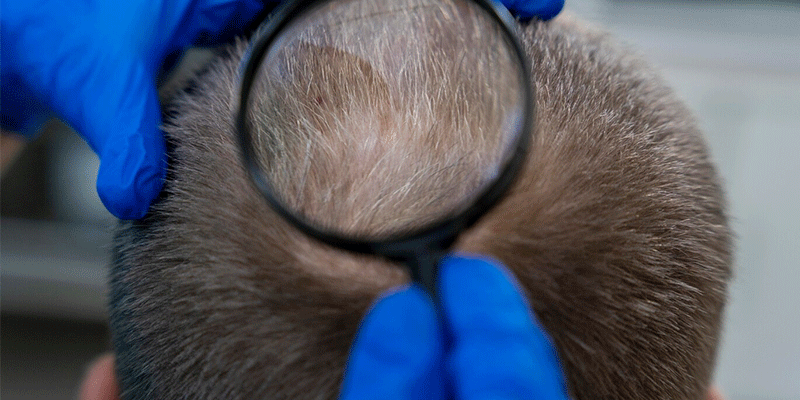Hair loss can be an upsetting situation for many people, affecting their confidence and esteem. Hair transplant surgery offers a solution to this problem, with modern techniques boasting a success rate of 90-100% for regrowth of donor hair follicles in the transplanted area.
However, achieving optimal results requires careful consideration and preparation. Here are some key steps to improve the success rate of your hair transplant surgery:
Researching Your Clinic and Surgeon: Choosing the right clinic and surgeon is crucial for the success of your hair transplant. Look for a qualified surgeon specializing in hair transplant operations, such as Dr. Sajal Halder, who has had the necessary training from Singapore, Kuwait and expertise for the last 16 years. It is also important to have reasonable expectations for the result of the procedure.
Preparation for Surgery: Maintaining good health before the surgery can improve the outcome and recovery process. Follow your surgeon’s pre-surgery instructions, which may include avoiding certain medications, alcohol, and tobacco. Proper planning can assist guarantee that the procedure goes smoothly and successfully.
Post-Surgery Recovery: Following post-operative care instructions is essential for optimal results. Avoid excessive strain on the transplant area, and follow your surgeon’s recommendations for wearing headwear. These steps can help promote healthy healing and improve the overall success of your hair transplant.
Taking Care of Your Transplant: Proper care after the procedure is crucial for the well-being of your transplanted hair. This includes washing and styling your hair carefully to avoid damaging the grafts. Following your surgeon’s instructions for post-transplant care can help ensure the best possible outcome.
Investing in Post-Transplant Maintenance: Continuing good hair care practices and nutrition can support healthy hair growth in the long term. Treat your transplanted and existing hair with quality shampoos and conditioners to keep it looking its best. Eating a balanced diet rich in vitamins, minerals, and proteins can also promote healthy hair growth.
Understanding the Process: It’s important to comprehend the hair transplant process, including the method (FUE or FUT), healing processes, and preoperative and postoperative care. This knowledge can help you prepare for the surgery and follow your surgeon’s instructions more effectively.
Factors Affecting Graft Survival in Hair Transplant
The survival of the grafts is crucial to the outcome of a hair transplant procedure, and it can be impacted by a number of variables. Understanding these factors is crucial for achieving optimal outcomes in hair transplant procedures.
Donor Scalp Issues: The quality and health of the donor scalp play a significant role in graft survival. Factors such as the density of hair follicles in the donor area, the elasticity of the scalp, and the presence of any scalp conditions can affect the viability of the grafts. A healthy donor scalp with good hair density and minimal scarring is ideal for successful graft survival.
Operation Day Factors: Several factors on the day of the operation can impact the survival of grafts. Physical damage to the grafts during extraction and implantation, dehydration of the grafts, transection (cutting of the grafts), blunt trauma to the grafts, and ischaemia-reperfusion injury (IRI) can all affect graft survival rates. Proper handling of the grafts during these processes is essential to minimize damage and maximize survival rates.
Cost Considerations: The cost of a hair transplant surgery can vary depending on various factors, including the number of grafts required, the complexity of the procedure, the skill and experience of the surgeon, the location of the clinic, and the quality of care provided. Patients should carefully consider these cost factors and weigh them against the expected outcomes and benefits of the surgery.
Impact on Overall Success: The survival of grafts is directly related to the overall success of the hair transplant surgery. If a significant number of grafts fail to survive, the density and coverage of the transplanted hair may be compromised, leading to less satisfactory results for the patient. Therefore, it is essential for surgeons to carefully consider and manage these factors to ensure the best possible outcomes for their patients.
Orange Tree Clinic – Best Hair Transplant Center
If you’re looking for the best hair transplant clinic, the Orange Tree Clinic is a great option to consider. Our clinic is dedicated to providing exceptional care and delivering outstanding results to all of our patients, with an over 97% success rate. With a team of highly skilled surgeons with more than 16 years of experience and state-of-the-art facilities, we ensure that every aspect of your hair transplant journey is smooth, comfortable, and successful.
At Orange Tree Clinic, we understand that hair loss can be a sensitive issue, and we are here to support you every step of the way. From your initial consultation to your post-operative care, our team is committed to providing you with the highest level of care and attention.
Our surgeons are experts in the field of hair transplant surgery and use the latest techniques and technologies to achieve natural-looking results. Whether you’re considering FUE or FUT, you can trust that you’re in good hands at the Orange Tree Clinic.
Schedule a consultation with Orange Tree Clinic today and take the first step towards a fuller, more confident you. Call us at +91 9868168310.

